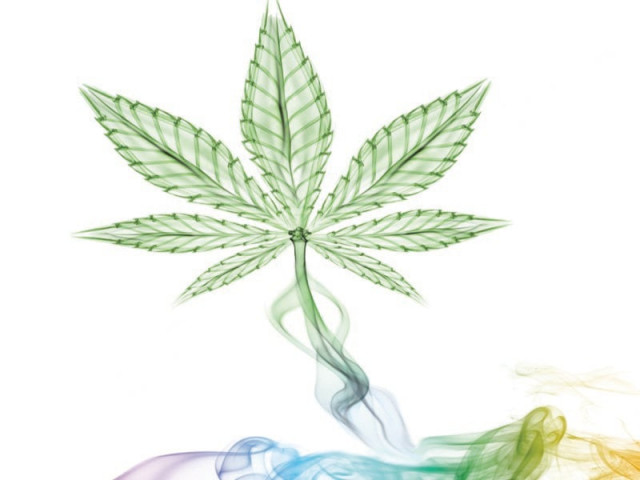Just a text message away: High end enterprise
Young men are now growing and selling their own weed in urban centres.

The trend is not surprising given that cannabis is the most common drug of choice in Pakistan, consumed by 3.6% of the population between the ages 15 and 64, or approximately four million people, according to a 2013 United Nations Office on Drugs and Crime report. The cannabis plant or ‘bhang’ is quite versatile in its use. The dried flowers and stems of its female plant are what make up weed that is burnt and smoked while the whole plant except the bud is crushed to make bhang, the beverage. The purified and compressed resin from the plant makes up hash.
With the demand for weed burgeoning, the business of growing and selling marijuana has become more lucrative than many white collar jobs. According to a Karachi-based dealer, if he grew 50 plants, every plant would reap 28 grams of weed that would fetch him Rs50,000 to Rs60,000, amounting to Rs2,500,000 a month. Hence, many weed dealers in urban centres, including Karachi, Lahore and Islamabad, are now growing cannabis in their backyards or indoors using local or high-quality imported seeds. Weed seeds can easily be ordered anonymously — four to five seeds for approximately Rs3,000 to Rs4,000 — from online forums such as the infamous Silk Road, which served as a black market for illegal drugs until it was shut down by the FBI in 2013. Many similar websites have sprung up since then. The seeds are usually secretly shipped to their destination, but there are other means too. “The seeds are so small that you can store them in a wallet and bring them across,” says Omair, a Karachi-based dealer.

It is inevitable, however, for a growing illicit business to run into trouble with the law enforcement. Thus, apart from the overheads, weed growers have to factor in the variable cost of bribing police officials that some contend runs as high as Rs100,000 a week. Dealers know that this amount will be easily recovered from their high-end clients who are willing to pay handsomely for their product.
While weed is mostly the drug of choice of the wealthy, along with pure forms of hash, ecstasy, PCP and heroin, substitutes like adulterated charas and the 100-rupee ‘raard’ are also available for those not willing to spend as much. “It is a mix of sleeping pills, chemicals and sometimes even burnt tires,” says 22-year-old Haroon, a pharmacology student by the day and dealer by the night. While Haroon started smoking up at the age of 14, he claims that his clients these days are even younger. “Nowadays kids know everything. They know what drugs exist, they know how to buy them and what to do with them later,” he says. Demand is usually at its peak during holiday breaks and exam season, he adds.
The use of weed is largely stigmatised for its adverse psychological and physical effects, such as rapid heartbeat, disorientation, lack of physical coordination, depression and anxiety. But some argue that legalising marijuana cultivation will regulate the black market and generate taxes, as in Iran and the states of Colorado and Washington. “The hemp variety of the cannabis plant, which is low in psychoactive drug compounds, has a million industrial uses,” says Haroon. Hemp is a reliable plant that produces nearly 250% more fibre per acre of land than cotton and requires only half the amount of water for cultivation, he elaborates. “It would be far more feasible to obtain pulp from hemp plants, which take only two to three months to grow as compared to other kinds of wood,” he adds.
While the utility of weed remains debatable, its profitability is certain. And until consumption continues to rise while the law enforcement looks the other way, more backyard weed gardens are likely to spring up across the country.
Zehra Qureshi is a law student in Karachi. She tweets @zehraque
Published in The Express Tribune, Sunday Magazine, June 22nd, 2014.












1724319076-0/Untitled-design-(5)1724319076-0-208x130.webp)






COMMENTS
Comments are moderated and generally will be posted if they are on-topic and not abusive.
For more information, please see our Comments FAQ